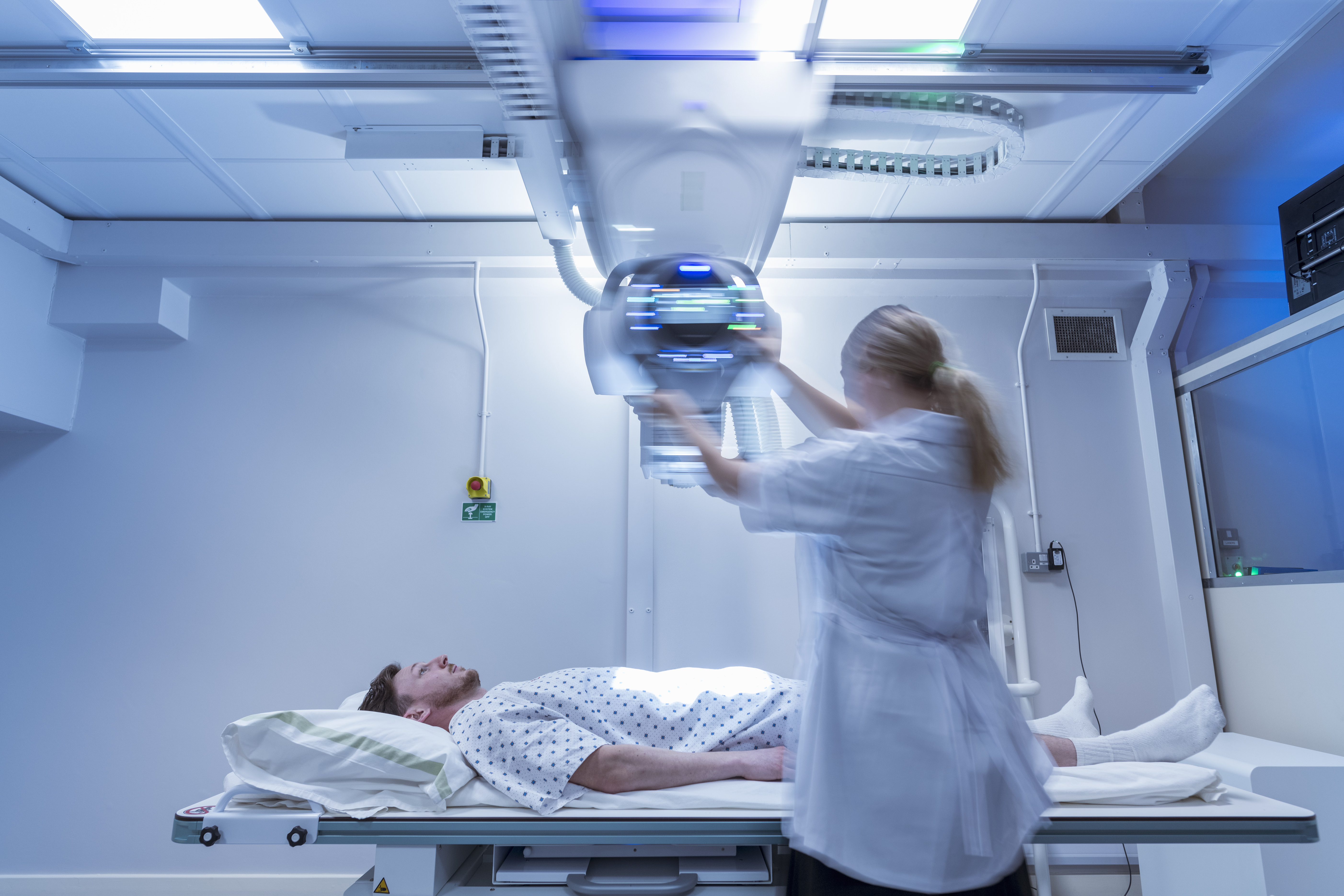
The Society of Radiographers, alongside 13 other NHS unions, has developed a document laying out the economic case for a significant investment in the NHS and its staff.
The report, entitled ‘Supporting UK's Economic Growth: The Case for NHS Pay’ and published on Friday (9 February), was compiled by the unions and is being published in lieu of a formal joint pay claim.
Healthcare and prosperity are linked
It emphasises that a decent NHS pay rise is crucial if both the workforce and the economy are to grow, explaining that healthcare and economic prosperity are inextricably linked, that lack of access to healthcare is preventing people from working, and the state of the healthcare system has far-reaching economic consequences.
The report also calls for specific funding for measures to remove barriers to retention and career progression in the pay and earnings structure; a firm commitment to address the real-terms decline in the value of NHS pay scales over a clear timetable; and a pay strategy and funding commitment to underpin the long awaited and very welcome long-term workforce plan.
Its release coincides with the day on which the NHS Pay Review Body's initial call for evidence closes.
NHS staff are due a pay rise from 1 April, but the review body is already months behind schedule because the government began the process so late, say the unions.
The findings in this document will support the case the SoR makes to the Pay Review Body when submitting its written evidence next week for the extended deadline, to be supported by further oral evidence on 5 March.
‘Under-investing is economically self-defeating’
Dean Rogers, director of industrial strategy for the SoR, said: “The SoR is pleased to be one of the organisations who commissioned this work, via the NHS Staff Council. This report shows that under-investing in the NHS is economically self-defeating. We quite literally cannot afford not to invest more in our NHS and that should start with a significant above inflation pay rise.”
The report highlights the same case for greater investment in the NHS and its staff that the SoR is due to make in its manifestofor a world-class health and social care system, explaining how the health of the NHS is vital to the UK’s prosperity.
Mr Rogers added: “Governments have been under-investing and defunding the NHS for too long. We are not and have not been spending anything like enough to maintain a modern world-class service. There are not enough radiographers or other health professionals to diagnose and treat people early enough so more people are sick and for longer than they should be. This impacts on our economic productivity, efficiency and output.
“The NHS is also a huge local and regional employer. For example, the NHS employs more people in the South West than the whole population of Exeter. Devaluing NHS professionals and year after year under inflation pay awards is devaluing regional economies as well. Above inflation pay awards don’t add to inflation.”
Cutting backlogs and providing quality care
The SoR and fellow health unions – representing ambulance staff, nurses, porters, clinical support workers, dieticians, podiatrists, physiotherapists and other NHS employees in England – are also calling for action from the government in the 2024/25 pay round to tackle pay and staffing issues, which are crucial to cutting treatment backlog and giving patients quality care.
They say a funding and pay strategy must be put in place to underpin the much-needed workforce plan. Otherwise understaffing will continue, more health workers will leave, patient care suffers and waiting lists soar.
Helga Pile, chair of the NHS group of unions and UNISON acting head of health, said there is a “clear link” between rising waiting lists and the staffing emergency afflicting the NHS.
“Investing in pay and improving working conditions are the ways to keep experienced employees in their jobs and attract new recruits,” she said. “In turn that means patients are more likely to get the care they need and get it more quickly.”
‘Enabling economic benefits to flow’
“But it also makes economic sense too. When health workers have more money in their pockets, they tend to spend it on their local high streets, supporting local businesses. And if the NHS had more staff, it would be able to treat a larger number of people. Falling sickness rates would enable the wider workforce to grow and economic benefits to flow across the country."
The 14 NHS unions involved in commissioning the document are: British Association of Occupational Therapists, British Dietetic Association, British Orthoptic Society, Chartered Society of Physiotherapy, Royal College of Podiatry, Federation of Clinical Scientists, GMB, Managers in Partnership, Prison Officers Association, Royal College of Midwives, Royal College of Nursing, Society of Radiographers, UNISON and Unite.
(Image: Monty Rakusen, via GettyImages)
